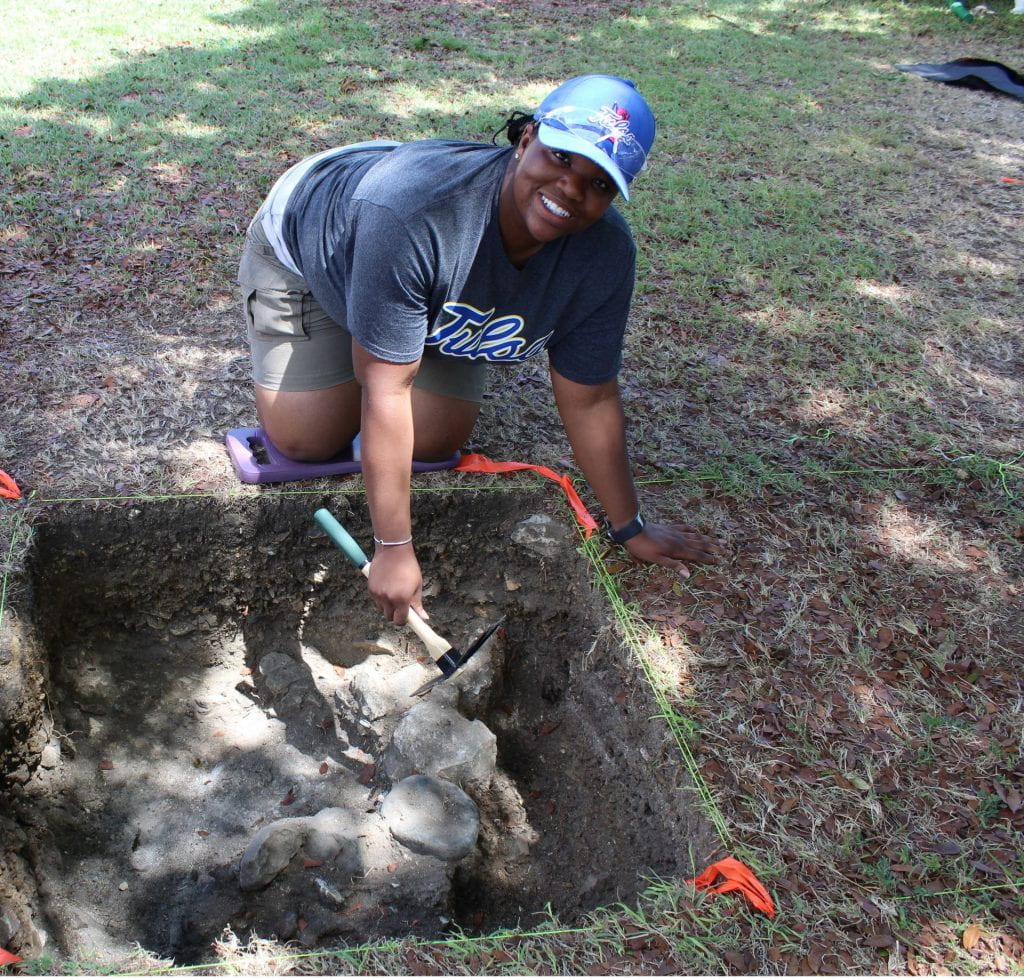
Dr. Alicia Odewale is a Tulsa native who graduated from Booker T. Washington High School in 2006 and received her Masters and PhD from the University of Tulsa. She is the great grandniece of Robert Ware, who attended Dunbar Grade School and survived the Tulsa Race Massacre in 1921. She is now an Assistant Professor of Anthropology at Tulsa, specializing in African Diaspora archaeology in the Caribbean and Southeastern United States with a theoretical focus on community-centered, restorative justice, anti-racist and Black feminist archaeology. Since 2014, she has been researching archaeological sites related to Afro-Caribbean heritage on St. Croix, U.S. Virgin Islands but continues to research sites of Black heritage in her home state of Oklahoma. Her latest research project based in Tulsa, Oklahoma works alongside other local Tulsans to reanalyze historical evidence from the aftermath of the 1921 Tulsa Race Massacre, launch new community-based archaeological investigations in the historic Greenwood district, and use radical mapping techniques to visualize the impact of the massacre through time on the landscape of Greenwood.
Her research interests include the archaeology of enslavement and freedom in urban contexts, Caribbean archaeology, rural and urban comparative analyses, community-based archaeology, ceramic analysis, transferware studies, mapping historical trauma from the 1921 Tulsa Race Massacre, restorative justice and auto-archaeology, and investigations into different forms of cultural resistance. She is the co-creator of the #TulsaSyllabus, an online resource guide that dives into the history and archaeology of Black enslavement, landownership, anti-black violence, and the rise of prosperous Black communities in Oklahoma.
Her research has received awards and support from the American Anthropological Association, the National Science Foundation, the Society of Historical Archaeology, the Tulsa Race Massacre Centennial Commission, the Tulsa Community Foundation, and the Digital Archaeological Archive of Comparative Slavery (DAACS). In addition to her role as faculty, she also serves as the director of the Historical Archaeology and Heritage Studies Laboratory at the University of Tulsa and serves as the co-creator of the Estate Little Princess Archaeological Field School in St. Croix that trains local students in archaeological methods and other STEM-related skills for free.